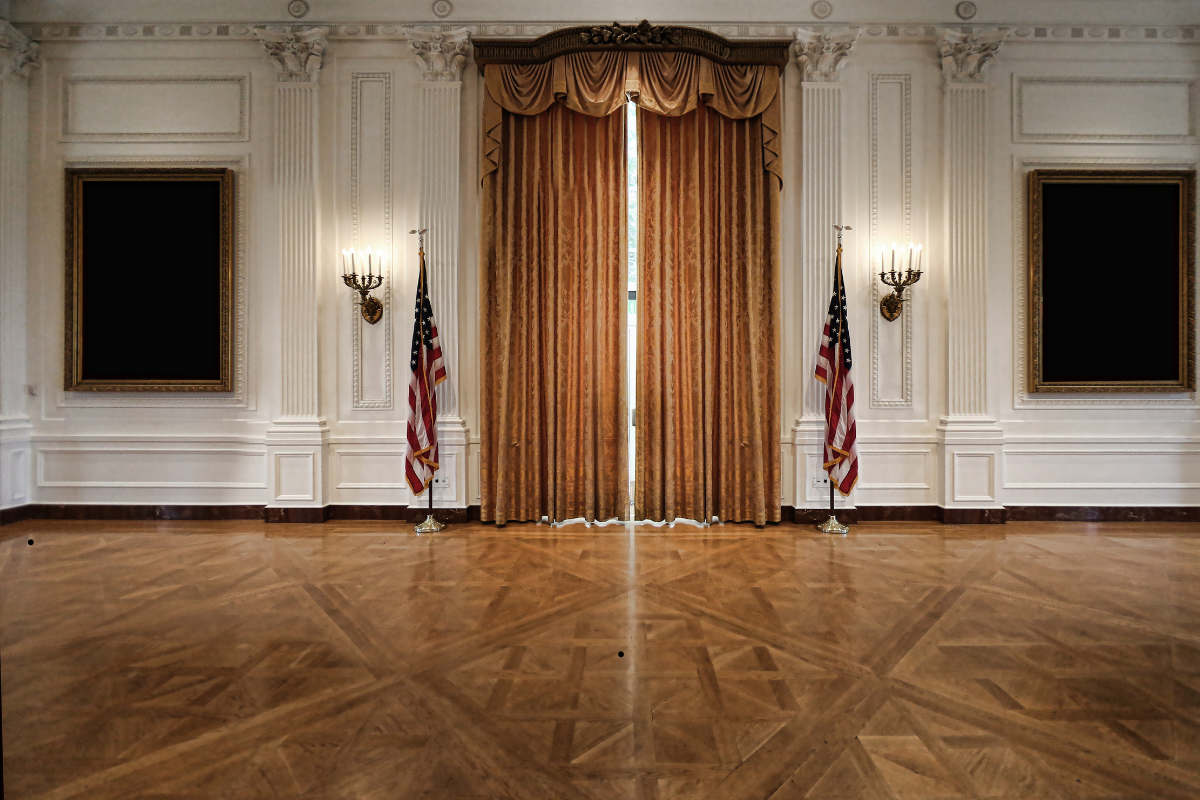Federalist 46
On November 6 of 1860 Abraham Lincoln was elected America’s 16th president and triggered its greatest political crisis. Five years and hundreds of thousands of deaths later the question of state secession was (at least temporarily) politically settled before the Court legally settled the issue in 1869 in Texas v. White.
Whether the question was rightly settled is an altogether different issue, especially when one considers the cost in lives required for the resolution. After all, secession had a long history. In Ancient Rome the secessio plebis lasted for centuries as a way of allowing commoners to walk away from elite rule that became too authoritarian. America itself could be thought of as a secession movement. The Declaration of Independence carefully laid out the case for why “in the Course of human events” it might become “necessary for one people to dissolve the political bands which have connected them with another.”
An essential element of political sovereignty is its indivisibility. Sovereign powers can figure out ways of co-existing, but if one power is subordinate to another its does so at the cost of its sovereignty. Sovereignty is absorptive; power doesn’t like rivals. For that reason forming larger political bodies out of smaller ones poses perennial difficulties. We’ve seen this recently as regards Brexit or other efforts to opt out of collective agreements made by otherwise sovereign entities. After all: who would want to join a club you were never allowed to leave?
The only two exceptions I know of to this rule would be in Catholic or Orthodox churches wherein you are stamped by baptism in such a way that you can never not be a Christian. You can be a bad one, but you can’t opt out. A similar idea pertains to those who view marriage as an indissoluble union. The underlying principle in both instances is the idea of a covenant: what God has joined together no man can put asunder. It’s no wonder, then, that when faced with a secession crisis Lincoln insisted on invoking America’s covenantal tradition when arguing for the indissolubility of the union, comparing Constitutional ratification to wedding vows.
A History of Secession
After John Adams had put the Alien and Sedition Acts into law Jefferson and Madison penned resolutions that implied this abuse of federal power could result in secession. During and after the War of 1812 northern federalists (!) threatened secession unless certain changes were made to the Constitutional system.
I mentioned that the American Revolution was a secesssionist act that Great Britain meant to prevent with arms. It is no accident, then, that South Carolina in its order of secession one 24 December 1860 directly refers to and patterns itself on The Declaration of Independence and did so because it believed that secession was Constitutional in the sense that the states had retained their sovereignty in the act of ratification. Lincoln may have thought all the states had become one flesh and that therefore no man could put the union asunder, but the southern states believed they retained enough autonomy to justify divorce should one party in the union be unfaithful and no longer true to its vows.
Readers know that the American Constitutional system contains a complex set of checks and balances by which certain authorities are granted the powers necessary to resist encroachment by other authorities. Within government we call this the system of checks and balances. But what of the relationship between governments themselves? How could the state governments resist the federal government encroaching on their legitimate powers? How would the US resist such encroachment by the UN?
Sovereignty in Federalist 46
Madison took up this important question in Federalist 46 and while he never fully answered the question of how states might resist overreaching federal power, I think the implication is pretty clear: secession. Since the stakes were so high and the overall argument Publius makes was the necessity of union, Madison was necessarily coy about this.
Madison’s argument had various parts. He first argued that people would always attach their affections to that which was nearest to them. Since the state governments were not only the most directly democratic to the people, and also because they would have greater personal knowledge of their representatives, the people would be “prepossessed” concerning the state governments, meaning if they had to make a choice between being a good Virginian or a good American, their instinct would always be to the former.
He argued further that the federal government would be to the states as the state governments were to local and district governments, and he suggested that those attachments were enfeebling the state governments. The logic of Publius, opposed as it was to any enfeebling of the federal government, would surely be to steer people’s affections away from such local attachments, and the argument about the weakness of the state governments was a sly effort on Madison’s part to suggest that our governing problem resulted from citizens locating their allegiances and affections too locally. This, too, is part of the legacy of Publius.
It All Turns on Affection
Madison went a step further in terms of his understanding of what motivates citizens. Suggesting their affections were benighted he also realized that the lives of citizens were touched on mainly by those local and state governments. To this day the things that matter most to citizens — safe streets, good schools, clean water, dependable energy, affordable shelter — are local government issues. Madison’s argument here implied that citizens would attach their affections to whatever government proved most effective in providing for their needs. Granted, the federal government under the Constitution had limited power for such providing, but if better administered it would command citizen’s attention and affection and, by implication, their tolerance in its expansion of those powers.
Madison reminded readers of the current state of things whereby the federal government was constantly at the mercy of state and local ones. Why would we expect that to change” “[W]here on one occasion improper sacrifices have been made of local considerations, to the aggrandizement of the federal government, the great interests of the nation have suffered on a hundred, from an undue attention to the local prejudices, interests, and views”
Given their broad range of powers what did the states have to fear from a federal government whose powers were “few and defined”? Madison upbraided the Anti-federalists for forgetting the fact that ultimate sovereignty resided with neither the federal or the state governments but with the people, and the people would ultimately decide which government they preferred. Their sentiments would always triumph over whatever formal powers respective governments had.
I can’t think of an Anti-federalist who had forgotten that, but readers may recall from discussions about standing armies that Anti-federalists feared that such decisions would not be left to sentiment alone. The balance could be shifted by force of arms. How might the building up of a federal force ultimately shift such sentiments?
Madison replied to the concern by treating it as not just another example of Anti-federalist bad faith but bad math as well. The federal government, he insisted, would never be able to build an army bigger than than those of its constituents members. Besides, Americans being exceptionally well-armed, a federal army could pose no threat to them.
The Problem of Federal Armies
As I said, Madison argued that the states clearly had the means to resist federal encroachments, but was intentionally vague on specifics. How would they do this? The people and state governments might not tolerate those encroachments, but what could they effectively do, especially if the federal government increased its coercive power? A diligent citizenry was called for. “The disquietude of the people; their repugnance and, perhaps, refusal to co-operate with the officers of the Union; the frowns of the executive magistracy of the State; the embarrassments created by legislative devices, which would often be added on such occasions, would oppose, in any State, difficulties not to be despised; would form, in a large State, very serious impediments; and where the sentiments of several adjoining States happened to be in unison, would present obstructions which the federal government would hardly be willing to encounter.”
What obstructions would they present? Here, Madison came as close as he would come to suggesting secession was the answer, drawing a parallel between such a possible state and the American Revolution. “The same combinations, in short, would result from an apprehension of the federal, as was produced by the dread of a foreign, yoke; and unless the projected innovations should be voluntarily renounced [by the federal government], the same appeal to a trial of force would be made in the one case as was made in the other. “
For that reason, the balance and legitimacy of the Constitutional system hinged on how much military power the federal power would be able to accumulate. Madison assured readers that “The reasonings contained in these papers must have been employed to little purpose indeed, if it could be necessary now to disprove the reality of this danger.” He described representatives who would allow such an imbalance to occur, who would elevate the military interests of the whole above the part he represented, as “traitors.” A federal government whose armies could overwhelm the collective might of one or a collection of states would form precisely the kind of tyranny Americans feared.
Since sovereignty resided with the people and their sentiments would ultimately govern things, Madison counted on a kind of manly diligence, a zealous guarding of their liberties and governing prerogatives. If the people became lax, or their attachments attenuated, or their zeal for defending liberty waned, Madison’s carefully calibrated system would fail. Only an alert patriotism for the near-at-hand could apprehend “the gathering storm” of military power “that would burst upon their heads.”
Director of the Ford Leadership Forum, Gerald R. Ford Presidential Foundation
Related Essays




